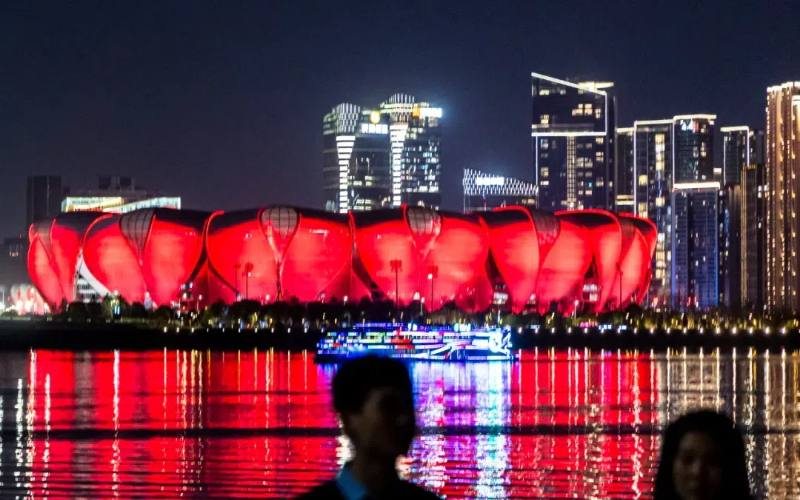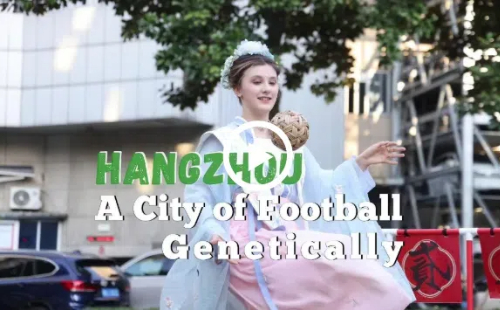Appreciating Peonies at the Jixiang Temple
It is not only the peonies in Luoyang city, Central China's Henan province that are world-famous. In the Song dynasty (960-1279), Hangzhou's peony flowers also enjoyed great fame, as evidenced by a verse composed by Su Shi (aka Su Dongpo, 1037-1101). In "Appreciating Peonies at the Jixiang Temple", he wrote:
Shy the old man's not adorning his head with a flower,
Embarrassed the flower'd be on his head.
As he returns home drunk, people will laugh at him,
Rolling up curtains along the ten-mile street.
A monk by the name of Shoulin, who excelled at growing peony flowers, once opened a peony garden at the Jixiang Temple, with thousands of peony flowers planted in a multitude of varieties, many of which were considered precious. Each spring when the peonies blossomed, Hangzhou residents as well as officials would flock to the temple to appreciate the flowers, and the "old man" who wasn't embarrassed by putting a flower on his head in Su's poem was among them.
On the 23rd day of the third month in the lunar calendar in 1072, Su Dongpo, who was the assistant prefect of Hangzhou, and Shen Li, the prefect, went to the garden to enjoy the peony flowers. The poem was based on their merry-making at the time.
"Preface to On Peonies", an essay by Su, also documented the magnificence of the "peony appreciation" at the time:
On the 23rd of the third lunar month, in the year of Xining [1072], I came to Shoulin's peony garden with Prefect Shen at the Jixiang Temple. The flowers in the garden are in the thousands, and the varieties in the hundreds. With fine wine flowing and music playing, most of the officials — fifty-three in total — in Hangzhou have gathered on the occasion to appreciate the beautiful flowers. All those present are so happy that even colleagues who don't usually drink are intoxicated, each adorned with a peony blossom. Tens of thousands of Hangzhou people have come to the temple to watch the flowers.
Such a spectacular spectacle calls to mind the various flower exhibitions held in Hangzhou today.
As indicated by the title of the essay, it was written by Su at the invitation of Prefect Shen for his 10-volume book On Peonies, which was launched at the peony flower appreciation meeting and covered such topics as biography, planting techniques, ancient and contemporary poetry, novels and writings about peony.
Su seemed to have a particular fondness for the peony flowers at the Jixiang Temple. That winter, he went to the temple alone and composed a second poem entitled "To the Jixiang Temple Alone on the Winter Solstice", in which he declared "who would be like Mr. Su, coming to the peonies not on their flowering time", pining for peony blossoms and lamenting for its impossibility.
In fact, he returned to the temple just a little over 10 days later, leaving a third poem in which he wrote "if only I could find Yin Qiqi, and flowers would bloom at any time". Yin Qiqi is a legendary Taoist monk who is said to possess magic powers and can make flowers open whenever he wishes.
In the following year, 1073, Su went to the temple several times to appreciate the peony flowers planted there, during which he composed a number of poems.
Unfortunately, the Jixiang Temple no long exists, and on its former site there now stands residential complexes.





 play
play